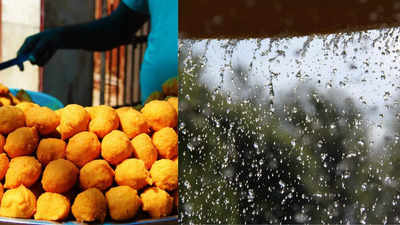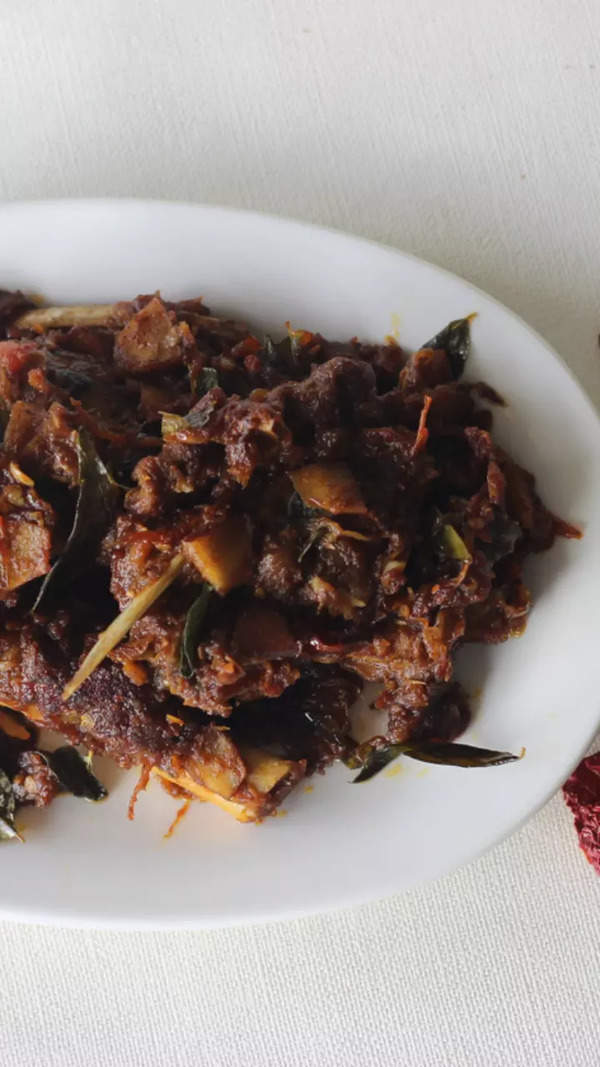Trending
Common foods you must avoid eating in Monsoons
Monsoons heighten digestive ailment risks. Avoid street food, leafy vegetables, raw sprouts, seafood, fried foods, dairy products, cut fruits, stale or leftover food, cucumber, and watermelon due to potential contamination and spoilage, ensuring safer food consumption during this season.

The monsoon season brings relief from the scorching heat but also increases the risk of waterborne diseases and infections. During this time, it's important to be mindful of the foods we eat. Consuming certain foods during this time may lead to digestive ailments due to contamination. Here’s a list of foods to avoid during monsoons.
Street Food
Street foods like golgappas, chaats, and pakoras are delicious but often prepared and stored in unhygienic conditions.The water used in these dishes may not be safe, leading to the risk of gastrointestinal infections. It’s best to indulge in these treats from trusted and clean sources.
Leafy Vegetables

Raw Sprouts
While sprouts are nutritious, they can easily harbor bacteria and fungi, especially in humid conditions. Consuming raw sprouts during monsoons increases the risk of food poisoning. It's safer to consume sprouts after thorough cooking or steaming.
Seafood
Fresh seafood is highly perishable and prone to spoilage, especially in humid and rainy conditions. It’s advisable to avoid raw or undercooked seafood to prevent foodborne illnesses such as diarrhea, vomiting, or bacterial infections.

Fried Foods
Fried snacks like samosas, pakoras, and fries are tempting during rainy days but can be heavy on the stomach and lead to indigestion. Excess consumption of oily and fried foods can also contribute to weight gain and digestive discomfort.
Dairy Products
Dairy products such as milk, cheese, and paneer can spoil quickly in high humidity. Contaminated dairy can cause food poisoning. Choose pasteurized and properly stored dairy products, or opt for alternatives like yogurt or buttermilk.
Cut Fruits
Pre-cut fruits sold in markets or by street vendors may not be stored hygienically and can easily get contaminated with bacteria and dirt. It’s safer to wash and cut fruits at home just before consumption to reduce the risk of infection.
Stale or Leftover Food
Leftover foods or foods kept for too long can quickly grow bacteria in humid weather, leading to food poisoning. Avoid consuming stale foods and always store leftovers properly in airtight containers in the refrigerator.
Cucumber and Watermelon
While refreshing, cucumber and watermelon are high in water content and can spoil quickly during monsoons. If consumed, ensure they are thoroughly washed and peeled to minimize the risk of contamination.
Street Food
Street foods like golgappas, chaats, and pakoras are delicious but often prepared and stored in unhygienic conditions.The water used in these dishes may not be safe, leading to the risk of gastrointestinal infections. It’s best to indulge in these treats from trusted and clean sources.
Leafy Vegetables
Leafy greens like spinach, cabbage, and lettuce are prone to contamination during monsoons. They can harbor dirt, bacteria, and parasites, which may cause digestive issues or infections. Opt for thoroughly washed and properly cooked vegetables to minimize risks.

Raw Sprouts
While sprouts are nutritious, they can easily harbor bacteria and fungi, especially in humid conditions. Consuming raw sprouts during monsoons increases the risk of food poisoning. It's safer to consume sprouts after thorough cooking or steaming.
Seafood
Fresh seafood is highly perishable and prone to spoilage, especially in humid and rainy conditions. It’s advisable to avoid raw or undercooked seafood to prevent foodborne illnesses such as diarrhea, vomiting, or bacterial infections.

Fried Foods
Fried snacks like samosas, pakoras, and fries are tempting during rainy days but can be heavy on the stomach and lead to indigestion. Excess consumption of oily and fried foods can also contribute to weight gain and digestive discomfort.
Dairy Products
Dairy products such as milk, cheese, and paneer can spoil quickly in high humidity. Contaminated dairy can cause food poisoning. Choose pasteurized and properly stored dairy products, or opt for alternatives like yogurt or buttermilk.
Cut Fruits
Pre-cut fruits sold in markets or by street vendors may not be stored hygienically and can easily get contaminated with bacteria and dirt. It’s safer to wash and cut fruits at home just before consumption to reduce the risk of infection.

Stale or Leftover Food
Leftover foods or foods kept for too long can quickly grow bacteria in humid weather, leading to food poisoning. Avoid consuming stale foods and always store leftovers properly in airtight containers in the refrigerator.
Cucumber and Watermelon
While refreshing, cucumber and watermelon are high in water content and can spoil quickly during monsoons. If consumed, ensure they are thoroughly washed and peeled to minimize the risk of contamination.
End of Article
FOLLOW US ON SOCIAL MEDIA









